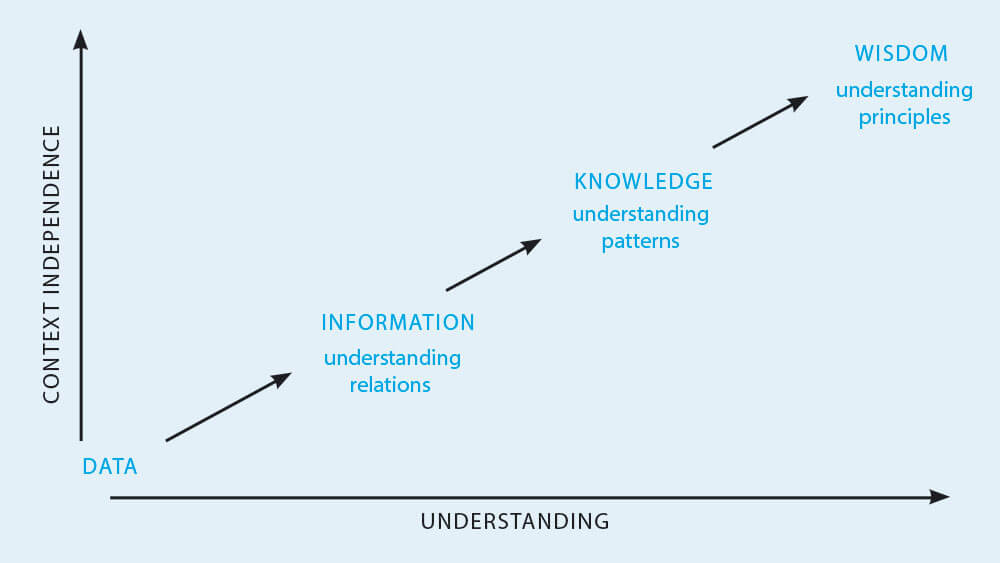
To distinguish your conference from the also-rans, you want your participant’s learning and understanding to grow from the ubiquitous “data and information” categories to “wisdom.”
Here’s what hasn’t changed about business events: Education continues to be essential to a participant’s experience. Here’s what has changed about that: I’m convinced that “something for everyone” programming — including basic content for the novice or intermediate practitioner — is no longer the right strategy for positioning your conference as a can’t-miss experience.
We need to raise the bar higher and meet the needs of the experienced and advanced practitioners. Early and mid-career professionals can catch on, and are in fact more attracted to challenging content and to making connections with experienced colleagues. If you’re concerned that not including elementary topics and approaches will ignore their needs, I can tell you that for each instance in which I’ve seen the comment “The content was over my head” on a session survey, there 99 other respondents who complained that the content was too basic.
To distinguish your conference from the also-rans, you want your participant’s learning and understanding to grow from the ubiquitous “data and information” categories to “wisdom.” The DIKW (data, information, knowledge, wisdom) learning model above was developed by system thinking pioneer Russell Ackoff and improved upon by Gene Bellinger.
Attributes of Wisdom Conference Sessions
Rarely can you deliver on wisdom in sessions that take the form of lectures, TED Talks, panels, debates, or an inspirational keynoter. Sessions that deliver on wisdom include these attributes:
- Participants who are genuinely curious.
- Session topics that are focused on problems or challenges that have no easy answer. For example, at PCMA’s most-recent Education Conference, a hackathon explored how the events community can combat homelessness.
- The learning experience is facilitated, not presented.
- Participants are actively involved in thinking through and working on the problem collaboratively in small groups.
Develop Problem Solvers and Critical Thinkers
According to CEOWORLD magazine and the “Future of Jobs” report by the World Economic Forum, the top two skills that will be most desired by employers/CEOs by 2020 are complex problem-solving and critical thinking. CEOWORLD reports that companies with strong problem-solving capability have a total return to shareholders that is 3.5 times higher than that of their bottom quartile counterparts over a three-year period.
When your conference is able to deliver on wisdom, you become invaluable to the companies and leaders your profession serves. Challenge your education team and/or program committee to make wisdom the goal when developing tracks or breakout sessions.
Dave Lutz, CMP, is managing director of Velvet Chainsaw Consulting.
On the Web
- Read “Data, Information, Knowledge and Wisdom” by Gene Bellinger.
- Read “Problem Solving Is a Critical CEO Issue.”
- Read about the PCMA Homelessness Hackathon.
Station Rotation
One session format that can work well for a problem-based session is called “station rotation.” With this set up, a meeting room will have three or four distinct seating areas scattered around the room. A facilitated discussion or activity — think different approaches to solving the problem at hand — will be introduced in each area.
After around 15 minutes at one station, the attendees move to the next station; the facilitators stay put. Each participant should experience a variety of ways to think through and solve the complex problem.
